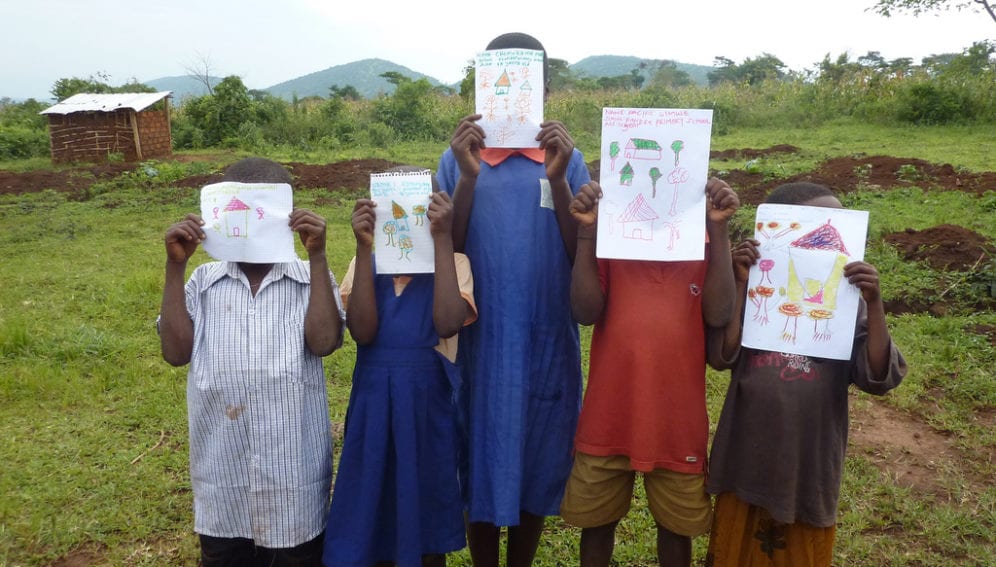By: Arthur Allen
Send to a friend
The details you provide on this page will not be used to send unsolicited email, and will not be sold to a 3rd party. See privacy policy.
Rapid technological changes are opening new frontiers in land tenure reform, a recent World Bank conference has heard, but some land tenure experts and community activists are sceptical about how much these technologies will help development.
Geographic information, obtained from satellites, drones, databases and other sources such as traditional surveys and presented in computerised form, enables governments, companies and communities to rapidly access information about land ownership, boundaries and value that may help expand socioeconomic development, some speakers said.
“If property rights are not clearly defined, you have no basis for sustainable development,” Rexford Ahene, a World Bank consultant and an economist at Lafayette College, United States, told SciDev.Net, reflecting on the bank’s interest in land administration. The 2014 Land and Poverty Conference, organised by the bank, was held in Washington DC, United States, last month (24-27 March).
Several countries presented reports about their progress in registering land and creating title deeds and land ownership maps. Rwanda demarcated 10.4 million plots — its entire landmass — in a three-year project that ended in 2012. In Indonesia, a US$333 million project, using drones and satellite data, began last year to demarcate and list the land titles for a pilot area.
Economic lift
Land registrations also help expand market-based economies and give governments a clearer picture of their tax base, Ahene told SciDev.Net.
Rwanda, for example, expanded its annual land tax income from two to ten billion Rwandan francs (around US$2.9 million to US$14.4 million) between 2011 and 2013. About one per cent of Rwandan land is now bought and sold each year, and title registration is facilitating economic activity, said Thierry Hoza Ngoga, manager of the Land Technical Operations Division within the Rwanda Natural Resources Authority.
Co Meijer, a manager for Kadaster International, the consulting arm of the Dutch government land registration agency, which has acted in many African countries, said: “Once people have clear titles, they realise their property is worth something, they maintain it and can use it as collateral for investments.”
Technology can simplify such registration by providing it in a more visible and easily accessible, computerised format.
“If the ICT is not manageable and sustainable, delivering clear and sustainable services to society will be a burden.”
Co Meijer, Kadaster International
Companies such as Trimble, Thomson Reuters and DigitalGlobe offer high-resolution maps based on satellite imagery and other data to government land administrators in the developing world. By clearly delineating property owned by small landholders, governments can enable landowners to obtain mortgage-backed loans. Such data, when integrated with satellite and other information sources, can also show local governments where a new school, a wider road or a flood abatement programme is needed, or where illegal logging or a viral epidemic is taking place.
In Uganda, digitising land titles made them more portable, allowing the government to open regional offices that made it easier for people to access the data and get their records. “Before, you had to go to the capital twice” to pick up the papers, said Richard Oput, an official in the country’s ministry of lands. “Now you present your data at a closer office, and get results from the same window.”
Putting records online also makes it harder for corrupt civil servants to ‘lose’ them, he noted.
Importance of local know-how
But Meijer said that, in adopting the latest technological tools, some governments risked overstretching themselves. In one African country, he said, an expensive geospatial mapping system was installed but no one knew how to use it. In another African nation, the registration archive was digitised, but without an effective index, so it was worthless, he said.
There should be a balance between the services a government has to provide and the supporting ICT (information and communications technology), Meijer said: “If the ICT is not manageable and sustainable, delivering clear and sustainable services to society will be a burden.”
Governments need to improve training for their land administration staff and employ systems that can be maintained with home-grown professionals and labour, rather than hiring expensive consultants who fly in, install complicated systems, send a bill and then return to the United States or Europe, he said.
Rwanda, held up as an example of efficient title registration, conducted its demarcation using teams of high-school students who conducted surveys and filled in maps, said Ngoga of the Rwanda Natural Resources Authority. It cost an average of US$8 to register each parcel. “We didn’t need high tech to capture administrative data,” he said.
Unjust land deals
Others at the conference questioned the primacy of mapping and allocating land titles as development tools.
Titling is important as part of a process of reform, said Rachael Knight of Namati, a legal empowerment NGO, but without respect for community rights and good governance it can simply speed up unjust land deals and disempower poor villagers.
“If the speed of current land grabs continues, we’re going to have many people disenfranchised, destroying their sacred sites and culture and relegating them to impoverishment,” Knight told the conference, referring to large purchases of food- and fuel-producing lands in the developing world by companies from China, the Middle East and other areas. “The goal isn’t mapping and documentation, the goal is to protect peoples’ lands and their way of life.”
Patrick Ochieng, executive director of empowerment organisation the Ujamaa Center in Mombasa, noted that Kenya has been titling land since the 1950s, but few smallholders have picked up their titles. Titling is a good idea, he said, “but I’m not sure of the need to turn everyone into a capitalist”.
Many of Ochieng’s clients are nomadic herders whose property use shifts from month to month. “If all the lands they visit are titled, there might be fences around parcels that they normally graze,” he said.
“There are a lot of complications to this issue and they aren’t being discussed here.”














